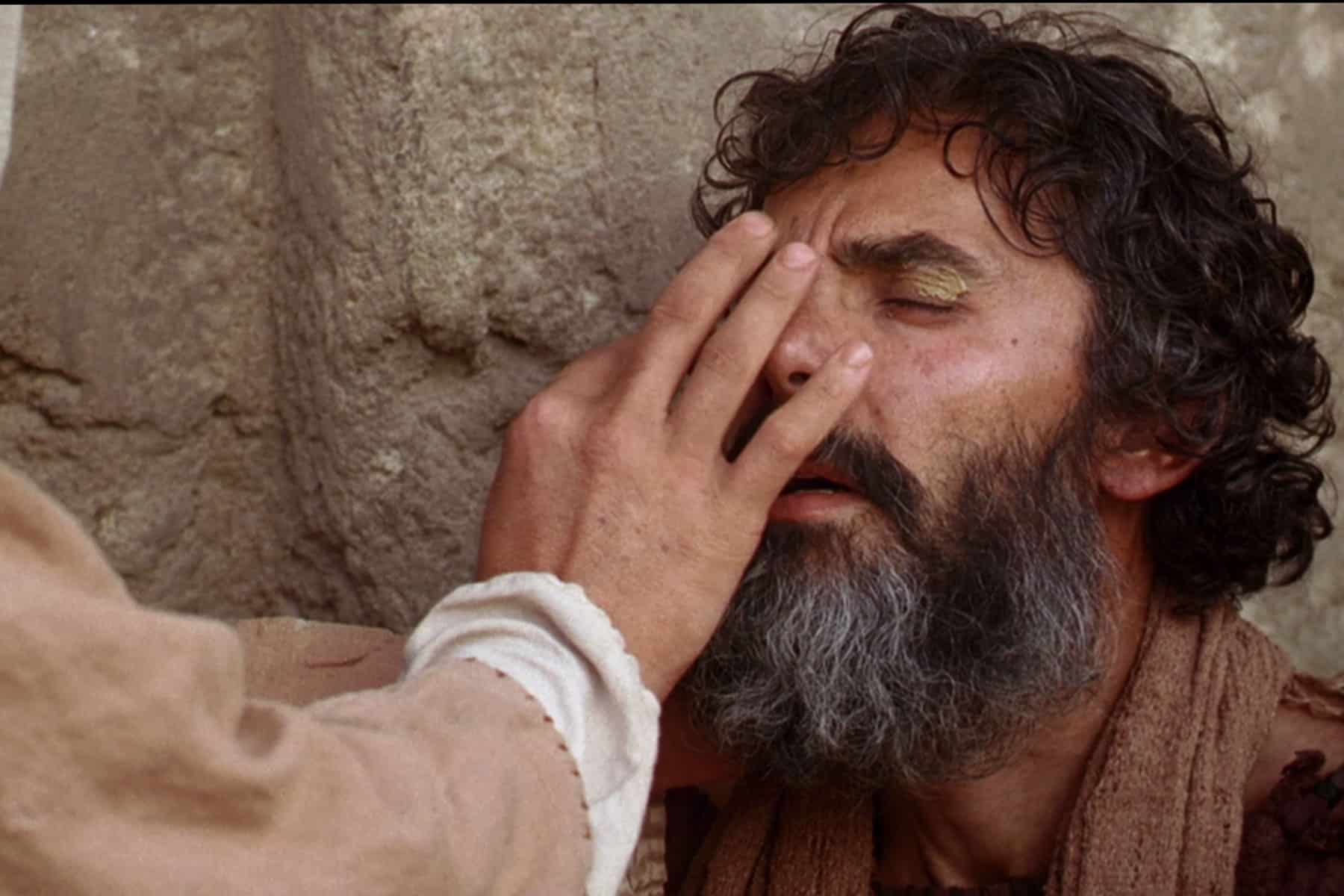Mark 8:22-26 — 22 And they came to Bethsaida. And some people brought to him a blind man and begged him to touch him. 23 And he took the blind man by the hand and led him out of the village, and when he had spit on his eyes and laid his hands on him, he asked him, “Do you see anything?” 24 And he looked up and said, “I see people, but they look like trees, walking.” 25 Then Jesus laid his hands on his eyes again; and he opened his eyes, his sight was restored, and he saw everything clearly. 26 And he sent him to his home, saying, “Do not even enter the village.”
What’s our takeaway from Mark 8:22-26?
First, we should be skeptical of our clarity of sight.
Do you think you have all your doctrinal ducks in a row and all the key areas of theology down pat? We may think we do until someone articulate and well-studied from another view challenges us and then we realize we can’t defend what we believe. Or what about clarity regarding our daily struggle against sin? Do we have eyes to see it correctly at the heart level? Are we even aware of some of our daily sin? Lastly, do we think our conscience is perfectly aligned with Scripture and that we always bring the correct biblical balance into every situation? To sum it up—Does we always trust our spiritual sight? I’m convinced much of our problems are because we do just that. If fact, Jesus addressed those who had great self-confidence in their spiritual sight in John 9:39 [when he] said, “For judgment I came into this world, that those who do not see may see, and those who see may become blind.” 40 Some of the Pharisees near him heard these things, and said to him, “Are we also blind?” 41 Jesus said to them, “If you were blind, you would have no guilt;[a] but now that you say, ‘We see, ’ your guilt remains.
Those who were actually farthest from the Lord were the most outwardly religious and therefore thought they were the closest. That is a sobering reality throughout the gospels. In contrast to those who always think they see correctly, we should remain consistently dependent upon the power of God to see things from his perspective as written in his word. Next…
–We should be patience with others who may not see all things clearly.
In a newer believer, there’s a beauty in the childlike faith of their knowledge, but it’s a very limited understanding and thus there are many stumblings and tripping over things. It takes time for them to get their bearings and watch out for potholes on the narrow road of Christ. Also, in those from unhealthy church environments, there is a tendency to have many things jumbled up and have unbiblical associations. It takes time and pure truth for anyone to grow through those things and the Lord is infinitely patient in the process. We should be patient and encouraging as well and be excited that the Lord might use us to help someone become more mature in Christ. Listen to this text from 1 Thes. 5: we urge you, brothers, admonish the idle [lazy, undisciplined], encourage the fainthearted, help the weak, be patient with them all.
It will be eye-opening to see the absolute debacles of the disciples coming up as Jesus is trying to explain his death and resurrection to them. If we were in his shoes, we would have been too self-centered to handle those ridiculous comments and requests and childish disputes. But our compassionate Lord faithfully bears with them through the process with the perfect blend of rebuke and patience and transforms them into his mighty apostles. Lastly…
–We should be eternally grateful that we can see anything at all. (and this will be where we begin to transition into our time of communion)
As we have working through the gospel of Mark, I hope it’s been blatantly obvious how much of a gracious privilege it is to know who Christ is and trust in him. The religious “experts” of the law regarded him as an imposter; a presumptuous pretender from Nazareth. They concluded his undeniable supernatural power came from Satan and that he was working for the kingdom of darkness. His own disciples’ blindness wasn’t much better. They heard all his teaching and witnessed every miracle, but they just thought him to be a great teacher. Jesus explains this in John 3:3…“Truly, truly, I say to you, unless one is born again [born from above or from God] he cannot see the kingdom of God.” Having eyes to really see Christ is a gift of the Holy Spirit. He must remove the scales off of the eyes of our heart.
The Apostle Paul was to be an instrument of the Spirit’s work according to his commissioning by Christ in Acts 26: 18 [I am sending you] to open their eyes, so that they may turn from darkness to light and from the power of Satan to God, that they may receive forgiveness of sins and a place among those who are sanctified by faith in me.’
Can you see the kingdom of God in Christ? Do you have a place among those set apart by God? If so, there’s only one reason for that—Christ’s blood purchased those things for you. You have insight, which those who touched his garment and heard him teach and ate his miracle bread, never received. What mercy!

